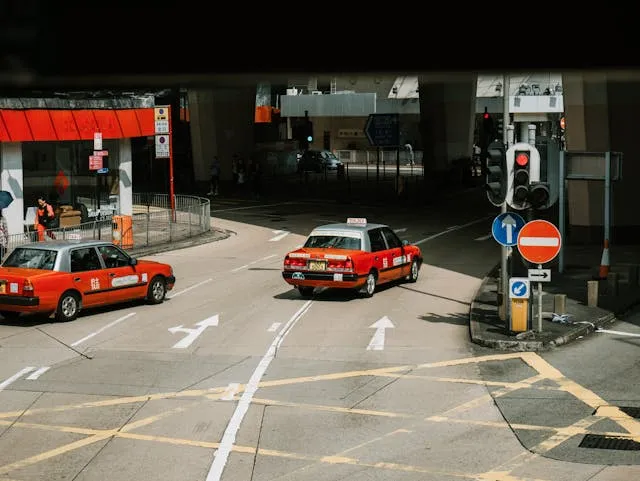Being a landlord is more than just collecting rent at the start of every month. It’s about creating safe spaces where tenants can live without fear of hazards. But here’s a fact many landlords overlook—keeping accurate safety records can be just as important as carrying out the safety checks themselves.
So why does documentation matter so much today? Why can a missing paper trail land a landlord in serious trouble? Let’s unpack this in detail.
The Shift in Rental Safety Laws
Over the past decade, rental laws in Australia have changed significantly. Tenant safety is now a major priority. In Victoria especially, landlords are legally required to ensure their properties meet strict compliance standards.
And here’s the catch—compliance isn’t just about doing the work. It’s about proving you’ve done the work.
Think about it. What use is a gas inspection, electrical check, or smoke alarm test if you can’t show written proof? In the eyes of the law, undocumented work is as good as work never done.
Why Record Keeping is No Longer Optional
Failing to keep records can put landlords in hot water fast. Here’s why it’s no longer something you can brush aside:
- Legal protection – If a tenant raises a complaint, your records are your strongest defence.
- Insurance requirements – Many insurers demand safety compliance paperwork before covering damages.
- Tenant trust – Clear records show tenants you take their safety seriously.
- Avoiding penalties – Non-compliance in Victoria can lead to hefty fines or tribunal disputes.
Would you risk your rental income just because of a missing document?
The Core Areas of Rental Safety Documentation
Landlords in Victoria need to track several areas of compliance. Each one requires proper records, not just verbal assurances.
1. Gas Safety Checks
Every two years, a licensed gas fitter must inspect all gas appliances, connections, and fittings. Documentation must include:
- Date of inspection
- Technician details and licence number
- List of appliances checked
- Identified issues and repairs made
2. Electrical Safety Checks
Every two years, a licensed electrician must test wiring, outlets, and switchboards. Your file should hold:
- Date of inspection
- Test results
- Compliance certificate if repairs were carried out
3. Smoke Alarm Checks
Every year, landlords must ensure smoke alarms are working. Records must show:
- Battery replacements
- Alarm tests
- Model numbers and locations
4. General Safety Obligations
Other checks—such as structural integrity, balcony safety, or pool barriers—may also require record keeping.
Miss even one, and you’re exposed.
The Rising Importance of Paper Trails
The rental industry is changing. Tenants are more aware of their rights than ever before. Digital platforms make complaints faster and more public. And authorities are cracking down on non-compliance.
Here’s the uncomfortable truth:
- A tenant injury without proof of compliance can ruin a landlord financially.
- Word spreads quickly. One safety lapse can affect your ability to attract future tenants.
- Legal battles are costly—and almost impossible to win without documentation.
Wouldn’t you rather spend a few minutes organising paperwork than face years of financial stress?
How Long Should Landlords Keep Records?
This is a question that often comes up. How long should you hold onto safety records? The general guideline in Victoria is at least 7 years.
Why so long? Because legal disputes can surface years after a tenancy ends. A tenant may only file a complaint once they’ve left. Having old records proves your compliance at that time.
It’s not about hoarding paperwork. It’s about protecting yourself from what might come down the line.
Moving Beyond Paper – The Digital Advantage
Gone are the days of bulky folders stacked in the corner of your office. Digital storage makes record keeping effortless.
- Cloud storage means your records are safe, even if you lose physical copies.
- Scanned documents make sharing with insurers or tenants quick and simple.
- Organised folders let you access inspection histories in seconds.
Ask yourself: is your current record-keeping system built for the modern age, or are you one misfiled document away from chaos?
The Landlord’s Safety Checklist
Here’s a quick way to check if your record keeping is up to scratch:
- Do you have certificates for every gas and electrical check?
- Are your smoke alarm test dates clearly noted?
- Can you show repair invoices linked to safety issues?
- Are your records dated, signed, and stored securely?
- Do you have a clear timeline for the next round of checks?
If you answered “no” to even one of these, it’s time to tighten up your system.
Why Tenants Care About Documentation Too
Tenants aren’t just passive occupants anymore. They’re informed, vigilant, and quick to raise concerns. Documentation does more than protect landlords—it reassures tenants.
- Tenants feel safer knowing their home is inspected.
- Written proof prevents arguments over whether checks were done.
- Transparent landlords build stronger, long-term tenant relationships.
In short, a landlord who values documentation becomes a landlord tenants trust.
The Victorian Standard: No Room for Error
Victoria has some of the strictest rental laws in Australia. Under the Residential Tenancies Act, landlords must provide documented evidence of safety checks.
Fail to do so, and you face:
- Tribunal orders that can cost thousands
- Reputational damage from public disputes
- Voided insurance claims if compliance can’t be proven
And here’s the twist: tenants don’t have to “prove” you’re non-compliant. The burden of proof lies with you—the landlord. That’s why keeping detailed safety records isn’t just smart. It’s essential.
Partnering with Professionals
Many landlords now partner with expert services to handle inspections and paperwork. Companies that specialise in safety checks ensure:
- Certified professionals carry out every inspection.
- Reports are detailed, compliant, and ready for audit.
- Records are stored digitally for easy retrieval.
If you want peace of mind, consider professional support. Services like a Rental Safety Check in Victoria take the guesswork out of compliance and help you stay one step ahead of regulations.
Common Mistakes Landlords Make with Documentation
Even well-meaning landlords slip up sometimes. Here are the top mistakes to avoid:
- Missing signatures – Always ensure reports are signed by licensed professionals.
- Unlinked records – Connect repairs to inspection reports so you show full follow-through.
- Storing everything in one pile – Disorganised paperwork is as bad as no paperwork.
- Not updating annually – Some checks, like smoke alarms, need yearly updates.
A strong system is about consistency, not one-off effort.
The Cost of Ignoring Documentation
What’s the real cost of neglecting record keeping? It’s not just financial penalties.
- Stress and uncertainty every time a tenant raises an issue.
- Long, draining tribunal hearings you could have avoided.
- Lost rental income if your property is deemed non-compliant.
- Damaged reputation among future tenants and agents.
In many ways, records are like insurance. You hope you’ll never need them—but when you do, they’re priceless.
Building a Landlord’s Safety File
Here’s a simple framework for landlords to follow:
- Create a digital master folder named “Property Safety Records.”
- Inside, make subfolders: Gas, Electrical, Smoke Alarms, Repairs.
- Save every certificate, invoice, and photo under the right folder.
- Name files with the date and service type for quick access.
- Set digital reminders for your next inspection dates.
In less than an hour, you can build a system that saves you years of hassle.
Future of Rental Safety Documentation
Looking ahead, documentation will only become more important. With technology, landlords may soon be required to share compliance data directly with regulators or tenants.
- Smart smoke alarms already generate digital test logs.
- Gas and electrical reports may soon move to central government databases.
- Tenants may get automatic notifications of upcoming checks.
The question isn’t whether documentation will matter more. It’s how prepared you are for that future.
Closing Thoughts
Being a landlord in Victoria today means wearing many hats—manager, negotiator, and above all, safety guardian. Carrying out inspections is only half the job. The real power lies in proving you did them.
Documentation is your shield. It protects your property, your income, and your reputation. It keeps you compliant with the law. And it shows tenants you care about more than rent—you care about their safety.
So, if your records are still scattered, outdated, or non-existent, now is the time to act. Because in today’s rental market, one missing document can cost far more than the effort it takes to file it.



